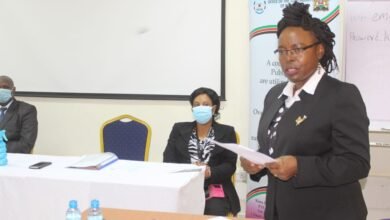
A new survey conducted by Kenya Private Sector Association (KEPSA) shows women and the youth-led Small and Medium Enterprises (SME) were the worst hit by the COVID-19 pandemic.
According to Carol Karuga, Chief Executive of KEPSA, 92 percent of the surveyed businesses were negatively impacted by the pandemic.
“As a result, 83 percent saw a reduction in customers resulting to 73 percent reduction in cash flow. The capital woes of SMEs continue as 48 percent recorded a total loss of revenue. As a result, many businesses have had to adapt their businesses to the pandemic trends and look for opportunities that lie therein.” said Karuga.
In the age of the pandemic, women-led SME’s resorted to drastic measures to be able to stay afloat with Karuga saying “56 percent of businesses were forced to reduce the operation to save on expenses.” She also added that “41 percent had to go to the extreme of laying off staff in order to survive.”
However, most businesses were also quick to identify and tap into the opportunities that the pandemic presented. KEPSA boss said many businesses changed tact and begun producing essential goods such as Personal Protective Equipment’s (PPE) like masks and gowns depending on their respective production capacity and cash flow abilities.
Just like other parts of the world, Kenyan markets doors were shut because of the virus that was characterised by global lockdown restrictions.
“We saw many businesses begin to source for new markets to source for raw materials and equally sell their final products to keep business going,” added Karuga.
Karuga spoke during the ring the bell for gender equality ceremony that is held annually in honor of women, an event which also takes stock of how far women have come in terms of representation.
The Nairobi Securities Exchange Chief Executive Geoffrey Odundo who also braced the event said listed companies over the years have made inclusivity efforts for both genders.
“Currently, we have at least 26 percent of women account for corporate leadership in listed companies. Progress equally shows in senior management with women accounting for 46 percent. When it comes to top positions though slow, there is progress with women chairlady of boards and CEOs accounting for 5 percent of all the listed companies,” said Odundo.
While the progress is commendable, Elizabeth Obando, Team leader, women economic empowerment at the United Nations (U.N) women Kenya expressed hope for an inclusive and fair opportunity end-game for women in all sectors.
“Moving forward we need to focus on research and data. This is the only way to make progress-oriented policies that are female-centered. This is a sure way to alleviate women from the plight they currently endure.”
The Global Compact Kenya boss Judy Njino on her part tasked the government, together with the civil society and the private sector to addressing the backlash and prejudices against Gender Equality.
“Kenya is the first to roll out this 10-month program with 14 companies taking part. The aim is to help companies close the gender gap within the next 10 years,” said Njino.
This is the sixth consecutive year, Global Compact Network Kenya in partnership with Nairobi Securities Exchange (NSE), UN Women Kenya and IFC Africa to ring the opening bell to celebrate International Women’s Day joining over 100 stock exchanges globally.





